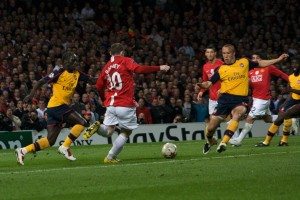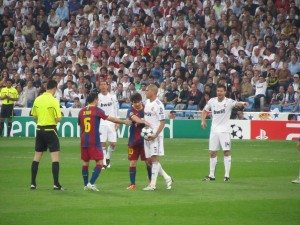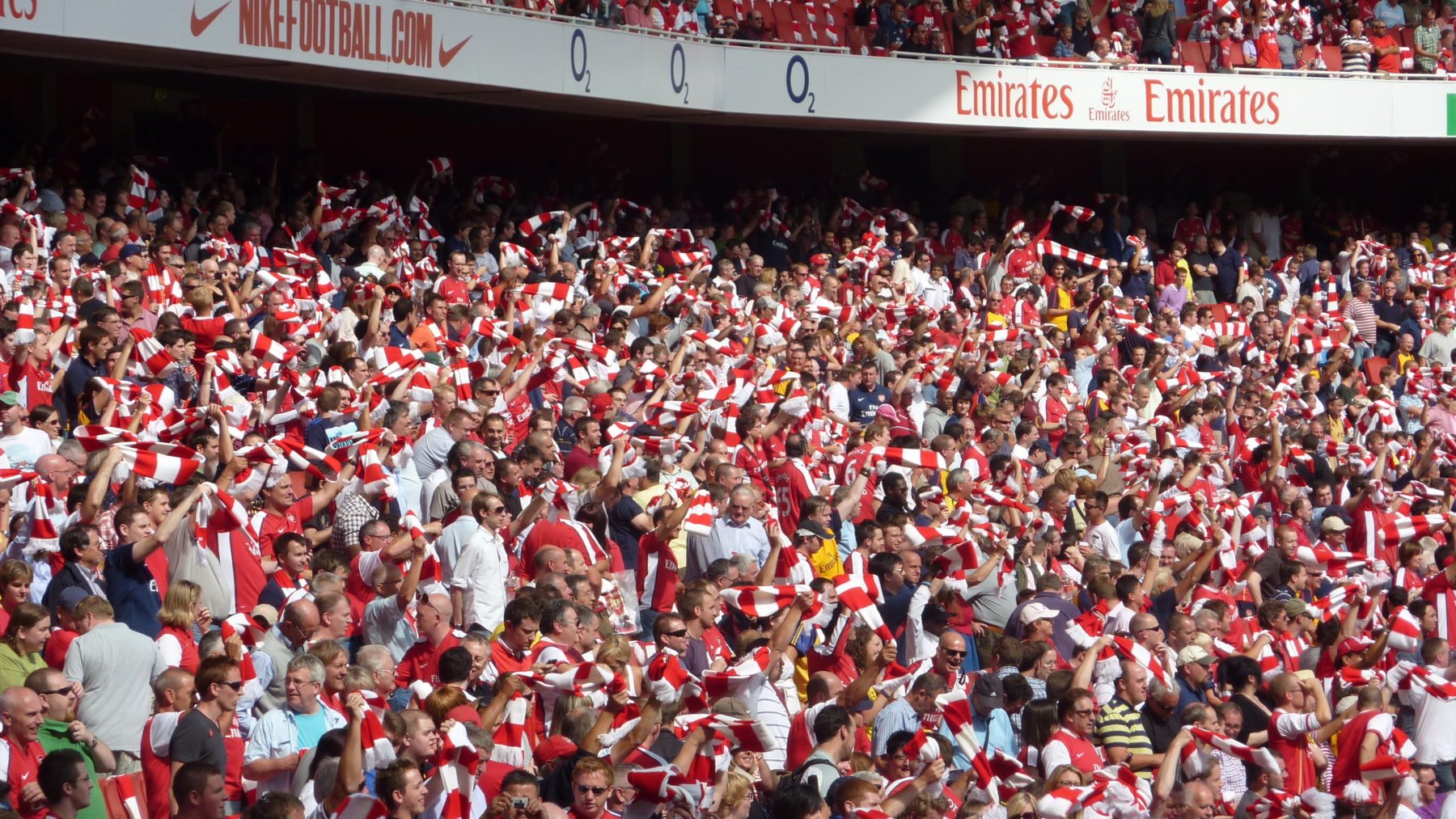Glory Hunter
It is received wisdom (the only kind in football circles) that a proper fan supports their local team. Proximity is everything. No season ticket? Not your team. Weren’t a ball boy growing up? Not your team. Wait… you haven’t even seen them play? Mate.
And so on, with increasing demands on your time and resources.
By the time I might have been inclined to go to football matches, my local ground better served our small north London community as a discrete location for drug deals, hand-jobs and underage drinking. Instead I inherited my family’s allegiance to Manchester United – home to the most despicable of bastard fan-boys. I never saw a game. I had a shirt with my name on it, though. United served me well for a time. Fergie’s obsession with winning had brainwashed the club – Van Nilsterooy scored goals like he was feeding an addiction; Neville shuttled up-and-down the right-wing like he’d lose everything if he ever stopped. You need only look at Cristiano Ronaldo to see how Fergie engineered young men into machines programmed to win. United were glorious but they were also joyless. There was no room for the insouciant genius of Veron; or for players to revel in their semi-deistic status (Beckham). I moved on.
I never saw a game. I had a shirt with my name on it, though.
I rarely utter the words “Arsenal Football Club” with anything but contempt these days. But if I really try, I can recall a time when I felt something more than just a passing admiration for their football. This was, I suppose, partway through The Invincibles season. To his credit, Wenger introduced an aesthetic conscientiousness to British football. Ours is a storied tradition: bullish and bellicose, yes, but never before beautiful. This, after all, is the home of 4-4-2, where tactical consideration stretches as far as giving each ball boy a towel so Rory Delap can literally throw the ball for Peter Crouch to head. Wenger changed all that. His masterful combination of a certain joie de vivre (recall the swagger of Henry’s celebrations) with the sheer bloody-mindedness of Adams, Keown et al. won our hearts and changed our minds.
Arsenal thought they’d be young and pretty forever but things fell apart when they left their cocoon. By 2006, the competitive landscape of the Premier League had changed – Liverpool were also contenders, Chelsea too. And by 2008, so had I. I was sixteen, recently dropped out of school and trying to take over the world from a bedroom/global-HQ in Luton. I was shallow and obnoxiously driven (going nowhere fast). It didn’t take much for me to consider myself a Chelski fan. The managers and players were secondary. So long as Stamford Bridge was under the quietly bossy gaze of an unassuming billionaire, dressed in an open-collar shirt and jeans, it was my home ground.
I moved on when I realised everybody hates Chelsea and no-one really liked me.
While I’d always associated some part of my identity with a football team, the actual experience of watching football was, for the most part, pretty unremarkable. Sure there were moments of drama and despair but I never felt anything. That changed when I found Futbol Club de Barcelona.
It didn’t take much for me to consider myself a Chelski fan.
It might’ve been Rome, 2009 – when Fergie’s men were simply helpless against a more advanced life form. It could’ve been Barcelona, 2010 – when Messi put Arsenal to the sword. Either of those answers would make my support of “Barctha” less shameful. But I know when it was and so do you. Because it was the day football ascended into another realm, the one tennis more often visits. When it became a sport that could make Gods marvel at the brilliance of men. Those first twenty-seven minutes…
Technical ability – however gorgeous – is not enough though. Great teams are made of so much more. That Barca side was bound together by a deep philosophy of football and the identity of a people; and led by a man for whom these were more than just words. Their football felt like it was driven by more than the vicissitudes of win-lose-draw. Even in defeat (Inter Milan, 2010/Chelsea, 2012) they were unbeaten.
I took their spiritualism to heart. They inspired me. The ninety minutes each week I got to experience Barca – to ogle while Xavi, Iniesta and Messi laughed-off a failed one-two-three…four-five-six then share a knowing look as if to say Next time – was, for too long, the only reprieve I had from an unhappy time in my life.
Things changed, of course. Pep left, Xavi aged and Messi looked jaded for a while. FC Barcelona proved themselves as corrupt as any corporation. More, even. And I discovered other joys. But like United, Arsenal and Chelsea, I loved them – earnestly and in good faith – for a time and for a reason.
So the next time someone suggests I’m not a “proper fan” because my mum wasn’t the tea lady or I don’t know the anthem – or I’m accused of being that most hideous of things: Glory Hunter! – I’ll kindly ask them to fucking do one.

Comments (1)
Glory hunter and a hell raiser, blimey you’re cool!